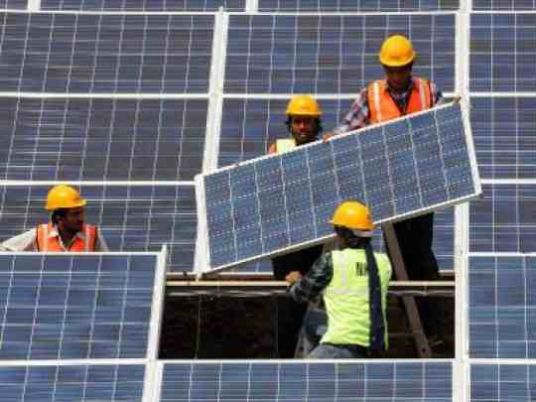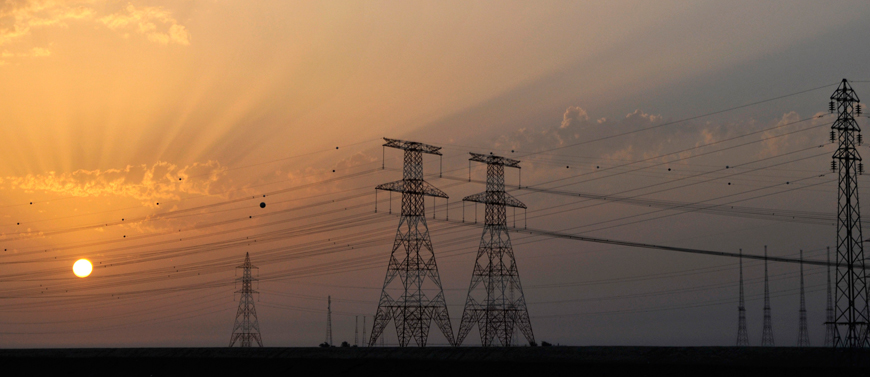Lasting between 45 minutes to an hour and a half, these power cuts are increasingly angering Egypt’s citizens while drawing attention to the government’s inability to provide enough energy to all households at all times.
To address the pressing issue of energy shortages and highlight potential long-term solutions, a conference titled “Sustainable Development: Prospects and Challenges” was held Monday at the Cairo University conference center.
Under the auspices of the United Nations Development Program, the Millennium Development Goals Awareness and Research Initiative at Cairo University and the Community and Environment Service Sector, this conference brought together a variety of professors with scientific, engineering and environmental backgrounds, as well as government representatives.
“Every day, the power goes out for an hour. There is no energy security in this country,” said Hoda Abu Shady, executive director of the Center for Nuclear Studies, at the beginning of her talk, in which she compared the merits of nuclear, solar and wind energy.
“Two million people die every year of air pollution-related diseases,” she added, quoting figures from the World Health Organization to promote the benefits of nuclear power, which she said “does not emit [carbon dioxide], is renewable and durable.”
She estimated that the 38 million tons of uranium present on the planet should last for more than 200 years, while fossil fuels such as coal and oil are dwindling.
“Nuclear energy should be expanded drastically, now,” she said emphatically, referring to the serious March 2011 Fukushima nuclear disaster in Japan, which she said was caused by “outdated nuclear reactors, overuse of the generators and overall bad maintenance.”
She said that Egypt’s nuclear plant would be equipped with the latest technology, or fourth-generation reactors, which she asserted would make the future plant completely safe.
While she clearly believes nuclear energy is the only concrete solution to Egypt’s energy crisis, she admitted that introducing some solar plants may be a good idea as well.
“It won’t be possible to replace fossil fuels without a huge drop in energy use,” she says, adding that in today’s Egypt, 25 percent of the energy is used by the industrial sector, another 25 percent by transport and the last half by the built environment.
She recommends a dual approach: the introduction of energy efficient buildings and a bigger space on the car market for hybrid vehicles.”
She ended her presentation, asking dramatically, “Are we going to fall in the dark? Are we going to ride camels again?”
Egypt as a pioneer in solar energy
Adel Khalil, a professor at the Cairo University Faculty of Engineering, gave a lecture on the role of renewable energy in achieving sustainability in energy supply. Obviously convinced by the enormous potential of the sun as a major energy producer for Egypt, he lingered on the potential of the Desertec project that seeks to connect the Europe and Middle East/North Africa regions through an electricity grid.
The extra energy harnessed in the North African countries will be exported to Europe, bringing in extra foreign currency for Egypt and other future energy producers in the region.
“The first solar thermal power station in the world was built in Maadi in 1912 by Frank Shuman, an American inventor, engineer and solar energy pioneer,” explained Khalil, to the assembly’s surprise.
“One thing I feel sure of … is that the human race must finally utilize direct sun power or revert to barbarism,” Shuman once said.
His plant in Maadi used parabolic troughs to power a 60–70 horsepower engine that pumped 23,000 liters of water per minute from the Nile River to adjacent cotton fields.
“Egypt is also blessed with excellent wind speed in certain locations like the Gulf of Suez,” Khalil said, stressing that the wind speed can reach 10.8 meters per second in favorable locations and estimating that the Gulf of Suez could host wind farms generating 20,000 MW of electricity.
To raise the awareness of policymakers and consumers on energy-saving techniques, Emad Adly, chairperson of the nonprofit Egyptian Organization for Consumers and Energy, told Egypt Independent that his organization is launching a new campaign. In partnership with two NGOS, the Arab Office for Youth and Environment and the Egyptian Forum for Sustainable Development, it has three main objectives: explaining the energy challenges currently facing Egypt to consumers, educating them on their rights and responsibilities, and participating in policy reform in the energy sector.
“A system which is incapable of providing electricity to all Egyptian households is a failure,” said Adly, who hopes to encourage 20 million Egyptians to reduce their energy consumption by 20 percent.




